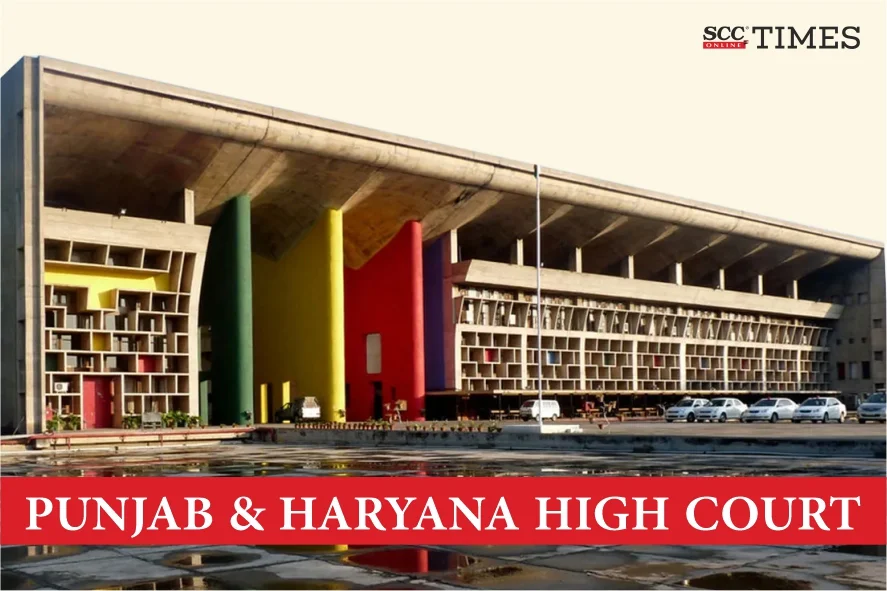Punjab and Haryana High Court: In a petition filed under Article 226/227 of the Constitution seeking to set aside the orders dated 09-10-1995, whereby he was dismissed from service, Jagmohan Bansal, J., stated the petitioner was dismissed from service in 1995 and a period of almost three decades had passed away. At this belated stage, especially when conduct of petitioner was not above the board, there seems no reason to interfere with concurrent findings recorded by different authorities under Punjab Police Act, 1861 read with Punjab Police Rules, 1934. Accordingly, the Court dismissed the present petition.
Background
On 04-03-1987, the petitioner joined Punjab Police as a constable on compassionate ground, and was dismissed vide order dated 09-10-1995, passed by Senior Superintendent of Police, Amritsar. The petitioner unsuccessfully preferred appeal before Appellate Authority followed by revision before Revisionary Authority.
Thereafter, the petitioner was dismissed from service without complying with mandate of Rule 16.24 of Punjab Police Rules, 1934 and Article 311(2) of the Constitution. The Disciplinary Authority dispensed with inquiry and dismissed him from service on the ground that he had relations with an extremist group.
The petitioner submitted that the respondent did not comply with mandate of Article 311(2) of the Constitution without any rhyme or reason. There was no ground to dispense with inquiry. He was dismissed mechanically, and it caused irreparable loss to him. The Appellate Authorities also acted mechanically and there was no application of mind. The petitioner stated that the impugned orders deserved to be set aside, and petitioner needs to be reinstated with back wages.
Analysis, Law, and Decision
The Court stated that a writ of certiorari could be issued for correcting errors of jurisdiction committed by inferior courts or tribunals. Error of jurisdiction included order by inferior court or tribunal without jurisdiction or in excess of it or because of failure to exercise jurisdiction. Similarly, a writ could be issued where in exercise of jurisdiction conferred on it, the Court or Tribunal acted illegally or improperly, as for instance, it decided a question without giving an opportunity to be heard to the party affected, or where the procedure adopted in dealing with the dispute was opposed to principles of natural justice.
The Court stated that the jurisdiction to issue a writ of certiorari was a supervisory jurisdiction and the Court exercising it was not entitled to act as an appellate Court. We must always bear in mind that a finding of fact recorded by the Tribunal could not be challenged in proceedings for a writ of certiorari on the ground that the relevant and material evidence adduced before the Tribunal was insufficient or inadequate to sustain the impugned finding.
The Court stated that in the impugned order, the respondent had not disclosed intelligence input which gave impetus to dispense with inquiry and dismissed the petitioner from service. However, on the asking of Court, the State Counsel produced report received from State of West Bengal. From the perusal of the reports, the Court observed that the petitioner was misusing his official position and was detained by Kolkata Police and at that point of time, he was carrying official gun. The Court observed that the petitioner had gone there without informing his seniors and without getting prior approval. He was posing himself as Gunman of purported President of District Congress Dal, Amritsar.
The Court observed that in State of Punjab v. Dalbir Singh, RSA No. 385 of 1993, decided on 03-09-2024 relying upon State (UT of Chandigarh) v. Mohinder Singh, (1997) 3 SCC 68 had upheld dispensation of inquiry under Article 311(2) of the Constitution. The Court stated that the petitioner’s case was squarely covered by the above-mentioned judgments.
The Court stated the petitioner was dismissed from service in 1995 and a period of almost three decades had passed away. At this belated stage, especially when conduct of petitioner was not above the board, there seems no reason to interfere with concurrent findings recorded by different authorities under Punjab Police Act, 1861 read with Punjab Police Rules, 1934. Accordingly, the Court dismissed the present petition.
[Mann Singh v. State of Punjab, 2024 SCC OnLine P&H 14020, decided on 21-11-2024]
Advocates who appeared in this case:
For the Petitioner: B.S. Sidhu, Advocate
For the Respondents: G.S. Bhullar, AAG, Punjab.








